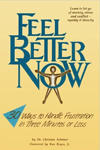Note: This web site provides information about several of my books, my blogs, and other writings. When I post a new entry in one of my blogs I will typically include it in this space. Here’s the latest example, from https://theistsandatheists.wordpress.com:
Oversimplifying Theism: An Example from Daniel Dennett
Daniel Dennett, author of Breaking the Spell: Religion as a Natural Phenomenon, has suggested one reason it’s so hard for theists and atheists to talk with each other: “There’s simply no polite way to tell people they’ve dedicated their lives to an illusion.”
I have a lot of respect for Dennett. As I wrote in Your Living Mind, I have “sheepishly” come to realize that some of his radical ideas about consciousness are more insightful than they seemed at first. And in Bridging the God Gap I give him credit for being more open-minded about religion than many prominent freethinkers. I think he’s on to something very important in his comment about telling people they’ve lived for an illusion, but I would put the point somewhat differently:
“IF you assume that belief in God is all there is to someone’s religion, then questioning that belief means challenging their whole way of life.”
But that’s a false assumption. Religion is far more than a list of theological doctrines. It involves an incredibly complex array of spoken and written statements and countless hours of worship and fellowship, as well as art and music, moral principles, spiritual practices, spiritual experiences, personal relationships, and involvement with religious institutions.
One can revise or reject theological tenets without invalidating everything else. Atheist Sam Harris, for example, follows many Buddhist teachings without accepting the Buddha’s 2500-year-old worldview. And there are who atheists belong to religious organizations because they value the fellowship, the rituals, and/or their congregation’s ethical commitments (Bridging the God Gap, p. 160).
Because we are drawn to simple stereotypes, we often speak as if we could summarize entire worldviews in a word or a phrase. That makes it very hard to critique someone’s life-stance without seeming to insult and invalidate that person. Our simplistic minds make nuanced dialogue difficult.
Life is strange and our minds are limited. It may be that both religious and secular worldviews are partially right but radically incomplete. I may be correct in claiming that someone is in the grip of illusions. But perhaps my own follies are just as foolish.
Roger Christan Schriner




